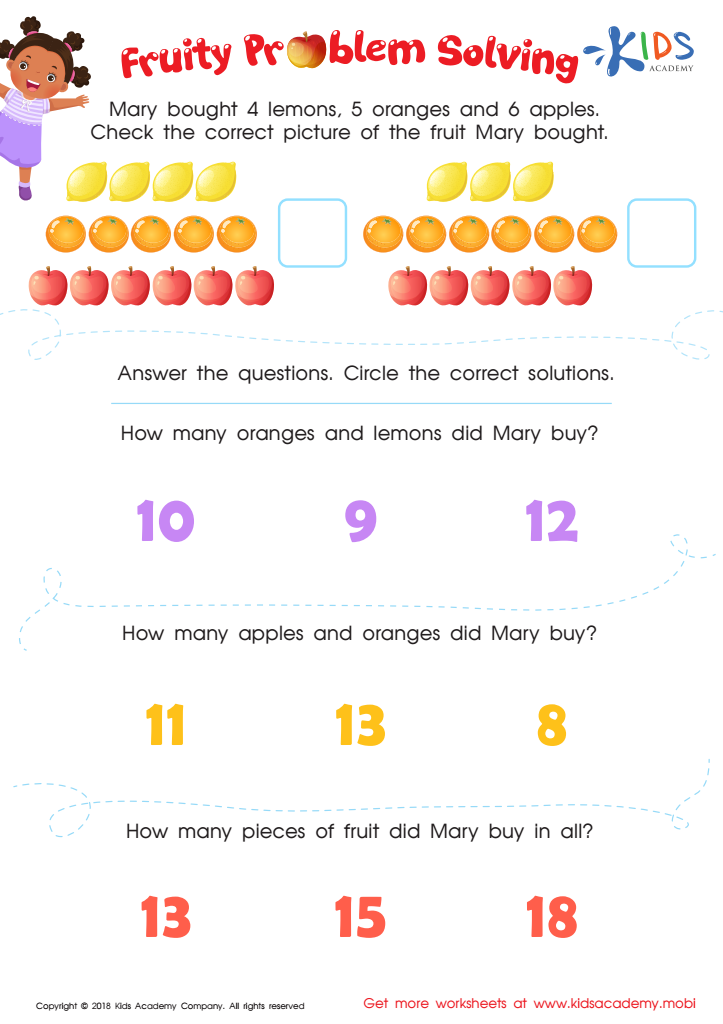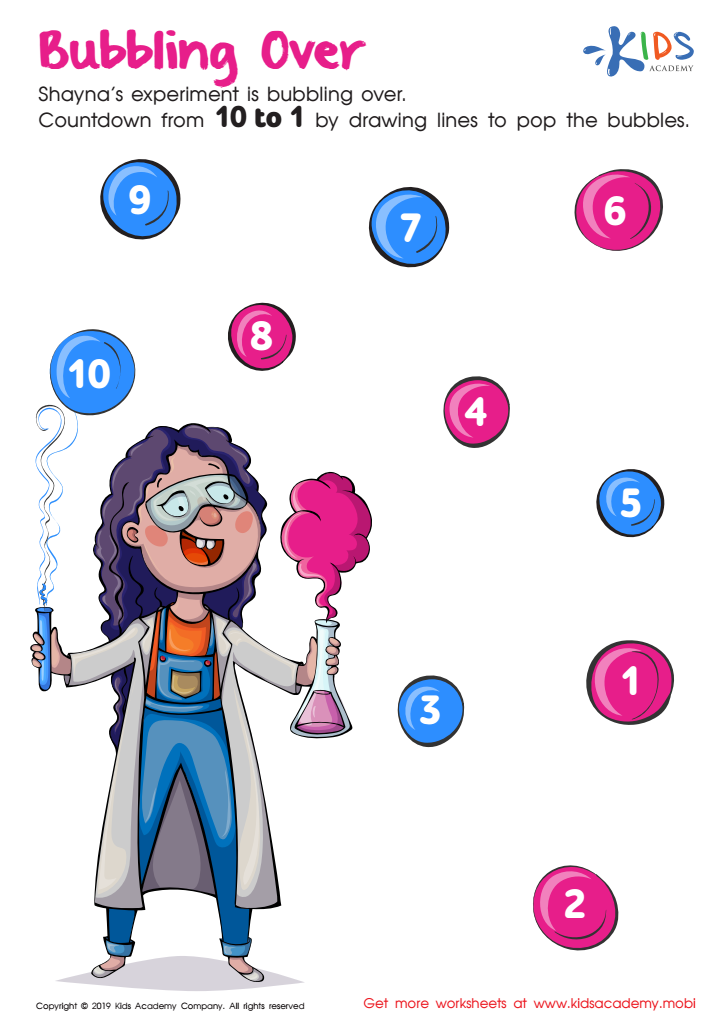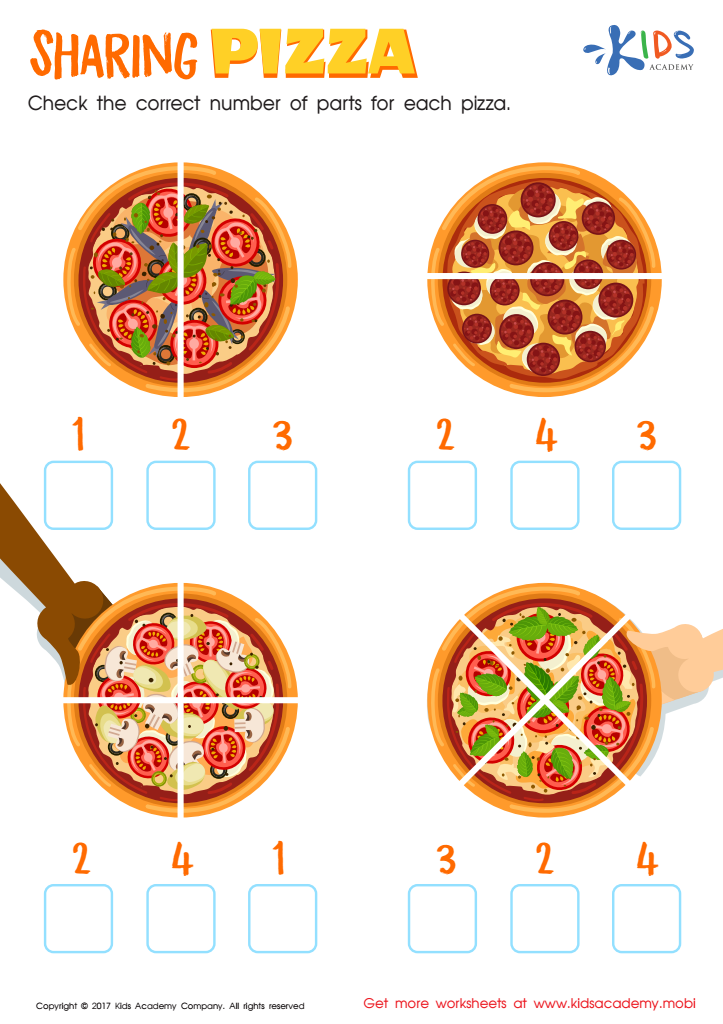Understanding fractions Numbers Worksheets for Ages 4-6
3 filtered results
-
From - To
Explore our engaging "Understanding Fractions Numbers Worksheets" designed for children ages 4-6. These worksheets introduce young learners to the concept of fractions in a fun and approachable way. With bright visuals and interactive activities, kids will develop foundational skills in identifying, comparing, and working with fractions. Perfect for home or classroom use, these resources help build confidence in math through hands-on learning experiences. Whether your child is just starting to understand numbers or needs reinforcement, our worksheets provide a solid introduction to fractional concepts, preparing them for future success in math! Download now to make learning about fractions delightful!


Fruity Problem Solving Worksheet


Bubbling Over Worksheet


Sharing Pizza Worksheet
Understanding fractions is essential for children ages 4-6 as it lays the foundation for their future mathematical skills. At this developmental stage, children begin to explore the concept of parts and wholes, which is crucial for grasping more complex math concepts later on. A solid understanding of fractions helps children make sense of everyday situations, such as sharing food or dividing toys, fostering essential life skills like cooperation and fairness.
For parents and teachers, fostering an early comprehension of fractions promotes critical thinking and problem-solving abilities. By introducing fractions through hands-on activities, such as cutting fruit or using playground time to divide groups into halves and quarters, caregivers create engaging and relatable learning experiences. This approach not only strengthens their numeracy skills but also enhances their reasoning skills and spatial understanding.
Furthermore, a strong grasp of fractions prepares children for advanced topics in mathematics, such as measurement and ratios, encountered in later grades. As such, investing time in teaching fractions during these formative years significantly contributes to their overall academic development and builds confidence in mathematical abilities. In summary, nurturing an understanding of fractions in young learners enriches their educational journey and establishes a vital skill set that will benefit them for years to come.

 Assign to My Students
Assign to My Students















